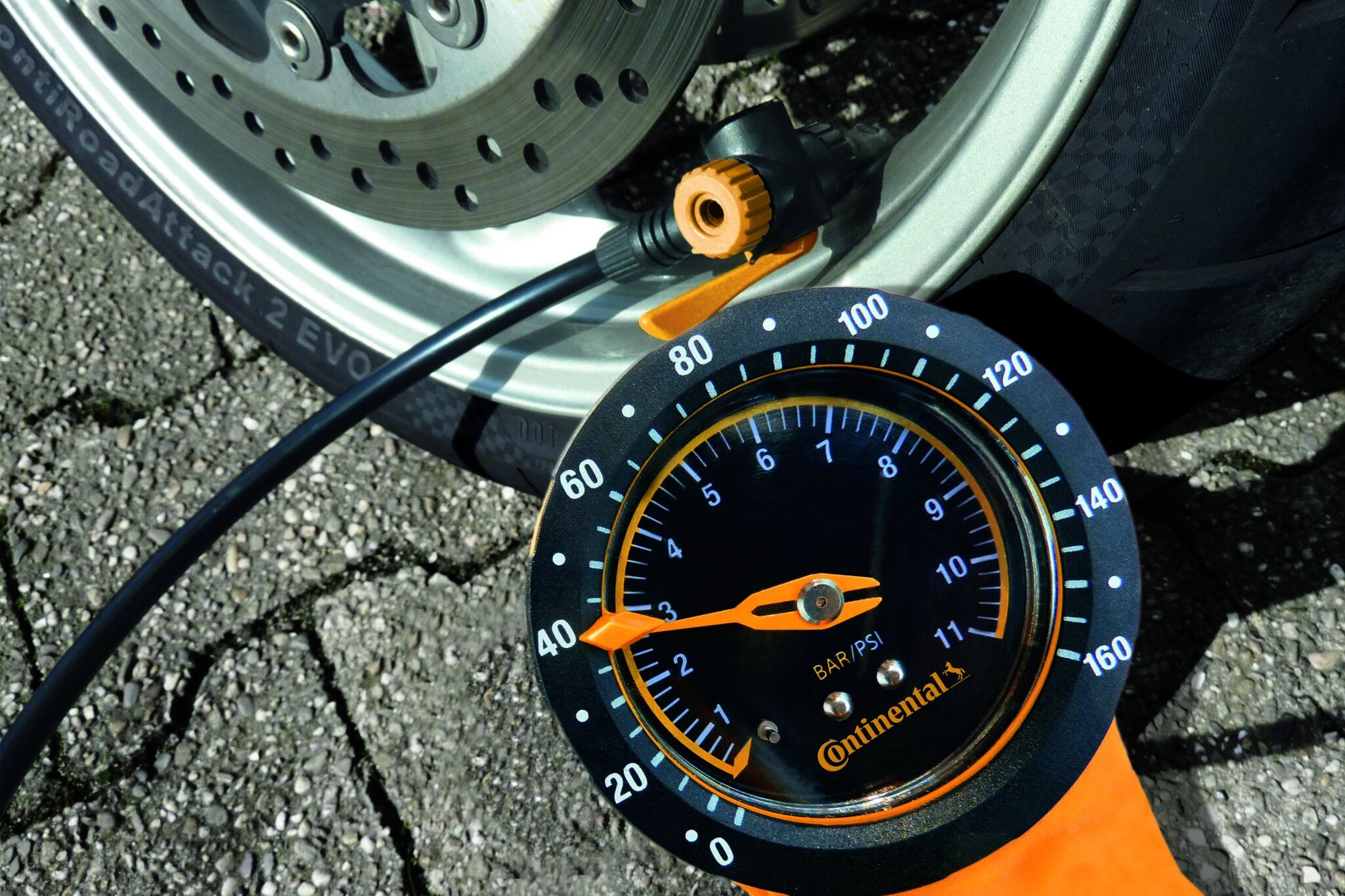# Tyre Knowledge
Tyre Pressure
and why it is important to check it regulary
- The air within the tyre carries the load of the motorcycle, not the tyre
- Pressure loss of up to 0.1 bar per month is normal
- Therefore, regular checks are important

Importance of the air pressure
Air plays an extremely important role in motorcycle design. The headwind generates air resistance and various forces acting on riding dynamics, and this plays a major role in the chassis technology: Air pressure in tubes or tyres is the force that determines the distance between the motorcycle and the asphalt. It goes without saying that this air quantity and thereby pressure plays a decisive role in riding characteristics. It is clear that any deviation from the recommended pressure will have a negative effect on the riding behavior.
With increased air pressure, the comfort decreases. Despite this factor, motorcyclists should always use the manufacturer's maximum recommended air pressure. Higher air pressure can also have a positive effect on fuel consumption. Faithfulness to the correct specified pressure is rewarded with more security in the extremely vital area between the asphalt and the rim and applies to all types of motorcycles.
Exceptions to the recommended air pressure only make sense in a few cases and should be used carefully:
Example off-road: The air pressure is usually lowered to increase the footprint for better grip. However, to prevent a tubular tyre from twisting and tearing the valve off, rim locks must be installed in the rim when the air pressure is reduced. Before returning to the asphalt, the air pressure must be immediately increased to the specified value in order to avoid tyre failure.
Individual air pressure values are also used on the racetrack. Optimal tyre pressures cannot be recommended. This depends on ambient temperature, road surface texture, type of motorcycle, chassis setup, riding style etc.
Every racer will optimise the ideal “sweet spot” of cold and hot tyre pressures to suit their individual style and needs. Continental's racing tyre flyer provides good advice. If street tyres are used on the racetrack, the inflation pressures can be lowered slightly to increase grip. Then, be sure to reset the pressure to the specified value.
A pressure loss of up to 0.1 bar per month is normal. For added safety it is recommended to invest in a floor pump with a pressure gauge.
In a nutshell: The Continental tyre pressure basics
- The compressed air carries the load, not the sidewall or carcass of the tyre
- The correct air pressure determines the size of the tyre contact patch
- The contact area between tyres and road is only the size of a credit card
- Reduced air pressure causes increased flexing of the sidewall and tread and can damage the tyre
- Increased inflation pressure makes tyres susceptible to potential collision damage
- Only check/change the air pressure for "normal operation" when the tyres are cold
- Depending on how the motorcycle is used, the specified air pressure can vary; the weight in particular (solo/pillion/ luggage) plays a decisive role
- Always follow the vehicle manufacturer's recommendations.